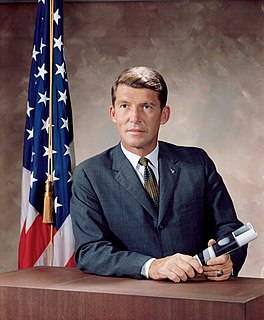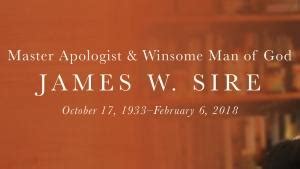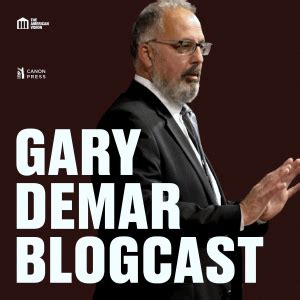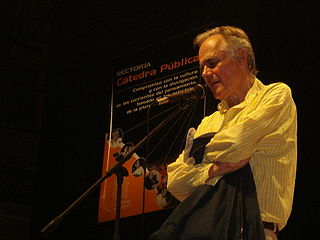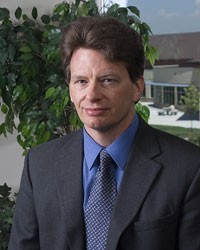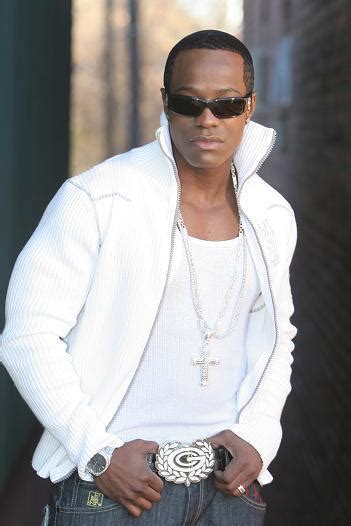Top 591 Biblical Quotes & Sayings - Page 10
Explore popular Biblical quotes.
Last updated on September 19, 2024.
The biblical authors wrote of God's sovereignty over His world, and of man's experiences within that world, using such modes of speech about the natural order and human experience as were current in their days, and in a language that was common to themselves and their contemporaries. This is saying no more than that they wrote to be understood. Their picture of the world and things in it is not put forward as normative for later science, andy more than their use of Hebrew and Greek is put forward as a perfect model for composition in these languages.
I believe that the biblical teaching is clear. It always contests political power. It incites to "counterpower," to "positive" criticism, to an irreducible dialogue (like that between king and prophet in Israel), to antistatism, to a decentralizing of the relation, to an extreme relativizing of everything political, to an anti-ideology, to a questioning of all that claims either power or dominion (in other words, of all things political), and finally, if we may use a modern term, to a kind of "anarchism" (so long as we do not relate the term to the anarchist teaching of the nineteenth century).
Feeling weightless... it's so many things together. A feeling of pride, of healthy solitude, of dignified freedom from everything that's dirty, sticky. You feel exquisitely comfortable... and you feel you have so much energy, such an urge to do things, such an ability to do things. And you work well, yes, you think well, without sweat, without difficulty as if the biblical curse in the sweat of thy face and in sorrow no longer exists, As if you've been born again.
Now we're living in a nuclear age, and the science that was supposed to be automatically for human welfare has become a nuclear - a science that gives us nuclear weapons. This is the ironic character of human history, and of human existence, which I can only explain, if I say so, in Biblical terms. Now I don't mean by this reason that I will accept every interpretation of Christianity that's derived from the Bible as many people wouldn't accept my interpretation. But that's what it means for me.
The Heidelberg Catechism rightly says, for all Christians who allow the Bible to absorb the world for them - who see reality through the biblical story - that the purpose of life is to glorify God - a personal being who is ultimate over us and everything else - and enjoy him forever. This should be clear to all Christians, but many Christians have been influenced to think otherwise even about the Bible because of dabbling in movements such as the New Age Movement or the Gospel of Health and Wealth or even naturalistic humanism.
If religion is a reaction of man, and nothing more, it seems to me that it represents a human desire for wrongdoers to be punished. I hate the idea of Idi Amin living in Saudi Arabia for the last 25 years of his life. That galls me to no end. I feel some sort of need for biblical atonement, or justice, or something. I like to believe there is some comeuppance, that karma kicks in at some point, even if it takes years or decades to happen. My girlfriend says this great thing that’s become my philosophy as well. 'I want to believe there's a heaven. But I can't not believe there's a hell.'
In my lifetime I was to write only one book, this would be the one. Just as the past Lingers in the present, all my writings after night, including those that deal with biblical, Talmudic, or Hasidic themes, profoundly bear it's stamp, and cannot be understood if one has not read this very first of my works. Why did I write it? Did I write it so as not to go mad or, on the contrary, to go mad in order to understand the nature of the madness, the immense, terrifying madness that had erupted in history and in the conscience of mankind?
Noah is the battle of justice versus mercy. In Genesis it says that Noah was righteous in his times. You think you sort of know what righteous means, you know, if you listen to a lot of Bob Marley. According to all the biblical scholars we talked to, righteousness is the proper balance of justice and mercy. If you think of that, as a parent, you know that if you have too much justice and you're too strict, you destroy a child. If you have too much mercy, as a parent, you destroy a child as well. A big part of this movie is Noah finding mercy for man.
If we think of the Holy Spirit only as an impersonal power or influence, then our thought will constantly be, how can I get hold of and use the Holy Spirit; but if we think of Him in the biblical way as a divine Person, infinitely wise, infinitely holy, infinitely tender, then our thought will constantly be, 'How can the Holy Spirit get hold of and use me?'
Does it take a blanket presupposition for a historian to discount some miracle stories as legendary? No, because, as even Bultmann recognized, there is no problem accepting reports even of extraordinary things that we can still verify as occurring today, like faith healings and exorcisms. However you may wish to account for them, you can go to certain meetings and see scenes somewhat resembling those in the gospels. So it is by no means a matter of rejecting all miracle stories on principle. Biblical critics are not like the Committee for Scientific Investigation of Claims of the Paranormal.
Some would define a servant like this: 'A servant is one who finds out what his master wants him to do, and then he does it.' The human concept of a servant is that a servant goes to the master and says, 'Master, what do you want me to do?' The master tells him, and the servant goes off BY HIMSELF and does it. That is not the biblical concept of a servant of God. Being a servant of God is different from being a servant of a human master. A servant of a human master works FOR his master. God, however, works THROUGH His servants.
If you can imagine the story of the world as a giant movie, to not have some understanding of the Bible - its story, its history, and its impact - would be like watching a great movie and removing part of the plot. It can't be done. The real truth is that everyone regardless of faith tradition benefits from knowing and understanding these aspects of the Bible. It enhances one's knowledge of literature, science, art etc. It's difficult to read any classic work of literature for instance and not see biblical allusions.
A case can certainly be made that Christians bear a major responsibility for our ecological crisis. But the fault is not their biblical but their unbiblical view of nature. Christians have long failed to understand what the Bible really teaches concerning nature and our responsibility for it. For this there is no excuse. Repentance must be our first response. Our second response must then be to right the wrongs of our faulty understanding and act accordingly. We are all responsible to know what can be known of God's will for nature, and we are then responsible to act on that knowledge.
Every civil government is based upon some religion or philosophy of life. Education in a nation will propagate the religion of that nation. In America, the foundational religion was Christianity. And it was sown in the hearts of Americans through the home and private and public schools for centuries. Our liberty, growth, and prosperity was the result of a Biblical philosophy of life. Our continued freedom and success is dependent on our educating the youth of America in the principles of Christianity.
How many times have you struggled with the interpretation of certain Biblical texts related to the time of Jesus' return because they did not fit with a preconceived system of eschatology? Russell's Parousia takes the Bible seriously when it tells us of the nearness of Christ's return. Those who claim to interpret the Bible literally, trip over the obvious meaning of these time texts by making Scripture mean the opposite of what it unequivocally declares. Reading Russell is a breath of fresh air in a room filled with smoke and mirror hermeneutics.
The task of all Christian scholarship—not just biblical studies—is to study reality as a manifestation of God’s glory, to speak and write about it with accuracy, and to savor the beauty of God in it, and to make it serve the good of man. It is an abdication of scholarship when Christians do academic work with little reference to God. If all the universe and everything in it exist by the design of an infinite, personal God, to make his manifold glory known and loved, then to treat any subject without reference to God’s glory is not scholarship but insurrection.
The basis for building a Christian society is evangelism and missions that lead to a widespread Christian revival, so that the great mass of earth's inhabitants will place themselves under Christ's protection, and then voluntarily use his covenantal laws for self-government. Christian reconstruction begins with personal conversion to Christ and self-government under God's law; then it spreads to others through revival; and only later does it bring comprehensive changes in civil law, when the vast majority of voters voluntarily agree to live under biblical blueprints.
Therefore, when I look for a church, I look for the music that best fits me and the programs that best cater to me and my family. When I make plans for my life and career, it is about what works best for me and my family. When I consider the house I will live in, the car I will drive, the clothes I will wear, the way I will live, I will choose according to what is best for me. This is the version of Christianity that largely prevails in our culture. But it is not biblical Christianity.
Orthodox Judaism is a thicket of detailed injunctions, Biblical commandments elaborated during centuries of prohibited proselytizing, functioning to limit interaction with outsiders. At the opposite extreme, Islam, still the most rapidly expanding of faiths, demands little immediate knowledge from those who would convert. The convert is permitted to enter and then to learn by participation, although there are plenty of detailed regulations and abstruse theological ideas to be pursued later, and the regulations do effectively separate believers from nonbelievers.
When all of our idols are taken away, all our securities and defense mechanisms,
we find out who we really are. We’re so little, so poor, so emptyand a shock to ourselves. But the Biblical God takes away our shame,
and we are eventually able to present ourselves in an honest and humble form.
Then we find out who we really are and who God is for usand it is more than enough. That is how an enslaved people became God’s people, Israel.
The so-called Christian nations are the most enlightened and progressive ... but in spite of their religion, not because of it. The Church has opposed every innovation and discovery from the day of Galileo down to our own time, when the use of anesthetic in childbirth was regarded as a sin because it avoided the biblical curse pronounced against Eve. And every step in astronomy and geology ever taken has been opposed by bigotry and superstition. The Greeks surpassed us in artistic culture and in architecture five hundred years before Christian religion was born.
There is nothing else than now. There is neither yesterday, certainly, nor is there any tomorrow. How old must you be before you know that? There is only now, and if now is only two days, then two days is your life and everything in it will be in proportion. This is how you live a life in two days. And if you stop complaining and asking for what you never will get, you will have a good life. A good life is not measured by any biblical span.
It's important for people in the Church to realize that the way they talk and think about the Bible isn't the way Bible scholars talk and think about it - and I'm including "Bible-believing" scholars there. There is a wide gap between the work of biblical scholars, whose business it is to read the text of the Bible in its own worldview context, and what you hear in church.
Creflo Dollar is compromising, confusing or outright contradicting essential Christian doctrine. Joel Osteen does exactly the same thing. Now, not necessarily the exact same doctrines, but he is compromising, confusing or contradicting essential Christian doctrine. Their view of faith is a force, words are the containers of the force, and through the force of faith, one can create his or her own reality. That's not biblical faith. That's a false faith, or faith that doesn't satisfy and ultimately will lead people into harm's way.
The biblical passage which says of Abraham and the three visiting angels: "And He stood over them under the tree and they did eat" is interpreted by Rabbi Zusya to the effect that man stands above the angels, because he knows something unknown to them, namely, that eating may be hallowed by the eater's intention.... Any natural act, if hallowed, leads to God, and nature needs man for what no angel can perform on it, namely, its hallowing.
...we see God working in terms of Jewish culture to reach Jews, yet, refusing to impose Jewish customs on Gentiles. Instead non-Jews are to come to God and relate to Him in terms of their own cultural vehicles. We see the Bible endorsing, then, a doctrine we call biblical sociocultural adequacy in which each culture is taken seriously but none advocated exclusively as the only one acceptable to God.
I was taken in the Spirit to the burning bush on Mount Horeb, Moses' "first ascension," and allowed to witness the encounter he had with the Lord there. Throughout the visitation, I was enabled to know and feel the thoughts and emotions of Moses' inner being. ... There was a Holy Narrator beside me who helped me understand what I saw and heard, and he made references to relevant passages of Scripture. There were other Biblical figures also present - Joshua, Samuel, David, and even the Lord Jesus were there.
The great biblical tradition says that loving God and loving one's neighbor are not two separate actions but two sides of the same action. It was the prophet Amos who bore witness to the fact that divine worship is nothing but human justice being offered to God and human justice is nothing but divine worship being lived out.
Trusting God means transferring our confidence and hope from ourselves to him, acknowledging that we have no ability in ourselves to live in a way that pleases him. Only he can change us by the power of his Spirit in us. This trust is manifested in a context of obedience in our lives to the biblical mandates God calls us to pursue. Training means acting upon that trust by doing things that help us rely upon God more and live out his desire for us.
You belong to the biblical race of Nephilim. Your real father was an angel who fell from heaven. You're half mortal." The boy's dark eyes lifted, meeting Chauncey's. "Half fallen angel." Chauncey's tutor's voice drifted up from the recesses of his mind, reading passages from the Bible, telling of a deviant race created when angels cast from heaven mated with mortal women. A fearsome and powerful race. A chill that wasn't entirely revulsion crept through Chauncey. "Who are you?
Marriage and parenting are the two strongest vows anyone will ever make. When you see these commitments being carelessly discarded, you can be certain that the ethics of that generation have been abandoned. ... What our society needs is a good dose of biblical ethic from God's people - the kind of ethic that requires us to keep our word no matter what the costs. Situational ethics have so shaped our society that even God's people have lost the concept of absolutes when it comes to keeping our word.
If one takes a public stand against, say, most any sin you can think of, one is considered "courageous" and a "defender of the faith." Folks will quickly applaud you and tell you how much they admire you for "taking a stand" on biblical truth. Except if you quote Matt. 5:44 and invite people to apply it in any sort of meaningful, literal way. The moment one begins to talk about loving your enemies they all of a sudden become "liberals," "extremists," or are accused of completely taking an otherwise straight forward passage "out of context.
The heart that delights in God and longs only to see His glory advance will seldom be conscious of sacrifice. God in His wisdom asks that we first love Him and then live in keeping with that core value. He does not want His people to think of what they do as sacrificial, even though from the world's point of view it may be just that. Gratitude for grace of God will always be found near the center of the Biblical Christian's most powerful motivations.
As for Christianity's alleged concern with truth, Christian faith is to free inquiry what the Mafia is to free enterprise. Christianity may be represented as a competitor in the realm of ideas to be considered on the basis of its merits, but this is mere disguise. Like the Mafia, if Christianity fails to defeat its competition by legitimate means (which is a forgone conclusion), it resorts to strong-arm tactics. Have faith or be damned - this biblical doctrine alone is enough to exclude Christianity from the domain of reason.
Life is not a straight line leading from one blessing to the next and then finally to heaven. Life is a winding and troubled road. Switchback after switchback. And the point of biblical stories like Joseph and Job and Esther and Ruth is to help us feel in our bones (not just know in our heads) that God is for us in all these strange turns. God is not just showing up after the trouble and cleaning it up. He is plotting the course and managing the troubles with far-reaching purposes for our good and for the glory of Jesus Christ.
What makes art Christian art? Is it simply Christian artists painting biblical subjects like Jeremiah? Or, by attaching a halo, does that suddenly make something Christian art? Must the artist’s subject be religious to be Christian? I don’t think so. There is a certain sense in which art is its own justification. If art is good art, if it is true art, if it is beautiful art, then it is bearing witness to the Author of the good, the true, and the beautiful
A ground frequently taken by Christian theologians is that the progress and civilization of the world are due to Christianity; and the discussion is complicated by the fact that many eminent servants of humanity have been nominal Christians, of one or other of the sects. My allegation will be that the special services rendered to human progress by these exceptional men have not been in consequence of their adhesion to Christianity, but in spite of it, and that the specific points of advantage to human kind have been in ratio of their direct opposition to precise Biblical enactments.
We are like dogs, cats, cows, rats ... What separates us from them and from the remaining matches against mammals is negligible. To have the same diseases. Rats spread plague like us, but we are just as contagious as them. And the dogs get diabetes, like we do, and get cancer, like us. And age, like us. And die, like us. Why then the biblical claim that man is the king of creation? Perhaps because only man has developed spoken language, the words, wherein lies its prodigious ability to lie.
Prophet just means intellectual. They were people giving geopolitical analysis, moral lessons, that sort of thing. We call them intellectuals today. There were the people we honor as prophets, there were the people we condemn as false prophets. But if you look at the biblical record, at the time, it was the other way around. The flatterers of the Court of King Ahab were the ones who were honored. The ones we call prophets were driven into the desert and imprisoned.
Without a thorough and deeply rooted understanding of the biblical view of truth as revealed, objective, absolute, universal, eternally engaging, antithetical and exclusive, unified and systematic, and as an end in itself, the Christian response to postmodernism will be muted by the surrounding culture or will make illicit compromises with the truth-impoverished spirit of the age. The good news is that truth is still truth, that it provides a backbone for witness and ministry in postmodern times, and that God's truth will never fail.
On Nov. 6, the day before my 94th birthday, our nation will hold one of the most critical elections in my lifetime. We are at a crossroads and there are profound moral issues at stake. I strongly urge you to vote for candidates who support the biblical definition of marriage between a man and a woman, protect the sanctity of life and defend our religious freedoms. The Bible speaks clearly on these crucial issues. Please join me in praying for America, that we will turn our hearts back toward God.
I think there in a great deal to be said for religious education in the sense of teaching about religion and biblical literacy. Both those things, by the way, I suspect will prepare a child to give up religion. If you are taught comparative religion, you are more likely to realise that there are other religions than the one you have been brought up in. And if you are if you are taught to read the bible, I can think of almost nothing more calculated to turn you off religion.
Protestant Christianity, whether in its liberal or conservative garb, finds itself waking up each morning in bed with a deteriorating modern culture, between sheets with a raunchy sexual reductionism, despairing scientism, morally normless cultural relativism, and self-assertive individualism. We remain resident aliens, OF the world but not profoundly in it, dining at the banquet table of waning modernity without a whisper of table grace. We all wear biblical name tags (Joseph, David, and Sarah), but have forgotten what our Christian names mean.
The modern-day gospel says, 'God loves you and has a wonderful plan for your life. Therefore, follow these steps, and you can be saved.' Meanwhile, the biblical gospel says, 'You are an enemy of God, dead in your sin, & in your present state of rebellion, you are not even able to see that you need life, much less to cause yourself to come to life. Therefore, you are radically dependent on God to do something in your life that you could never do.
You have to know yourself, and that once you know yourself, then you cannot be bound by - because sometimes we are bound by other people's thoughts, because we are not sure about ourselves. But once you know yourself... I guess it is really an expression of the biblical statements that the truth will make you free! When you know, then you are free, your mind is free.
First Corinthians so clearly says that whether we eat or drink, do it all to the glory of God. It's not just self. Jesus said ... in Matthew 16, 'Deny yourself, take up your cross and follow Me.' The Osteens have just inverted that. They think it's not the denial of self, but the exaltation of self. They're not trying to pursue a cross; they're trying to pursue prosperity. And they're certainly not following the biblical Jesus. They're following whatever brings happiness and contentment.
Humans are pack animals. In Biblical times, the great market cities in Europe or the United States, people want to be with other people. And in a way, the more that we're isolated, whether we're living on farms and we're only talking to our cell phone, the greater the need we have for group experience. So while people are saying that no one is going to go shopping because it's just inconvenient, and it's not as easy as buying online, why are people going to concerts? Why are people going to museums? Why are they going to sporting events?
Biblical higher criticism is preserved in the particular enclave of academic Christian scholarship and is thought to be too unfruitful to share with the average pew-sitter, for it raises more questions than the church can adequately answer. So the leaders of the church would protect the simple believers from concepts they were not trained to understand. In this way that ever-widening gap between academic Christians and the average pew-sitter made its first appearance.
When my sons arrived in the family, their legal status was not ambiguous at all. They were our kids. But their wants and affections were still atrophied by a year in the orphanage. They didn't know that flies on their faces were bad. They didn't know that a strange man feeding them their first scary gulps of solid food wasn't a torturer. Life in the cribs alone must have seemed to them like freedom. That's what I was missing about the biblical doctrine of adoption. Sure it's glorious in the long run. But it sure seems like hell in the short run.
Cross-cultural reality testing forces people to examine both their own and others' understandings of reality. Most people simply assume that the
way they look at things is the way things really are, and judge other cultures' views of reality before understanding them. These judgments are
based on ethnocentrism, which closes the door to further understanding and communication. Furthermore, ethnocentric judgments keep missionaries from examining their own beliefs and values to determine which of them are based on biblical foundations and which on their cultural beliefs.
If I had to choose between the two ways of approaching the deity, I should prefer the existential relational way, to the abstract philosophical way. I think it is truer, or in any case, less misleading, to say that God is an old Jew with a white beard whom I love, than to say that God is the ground of being and meaning, or to say that God is a name denoting the ultimate mystery. I prefer the bold primitive colors of the Biblical way of describing God.


